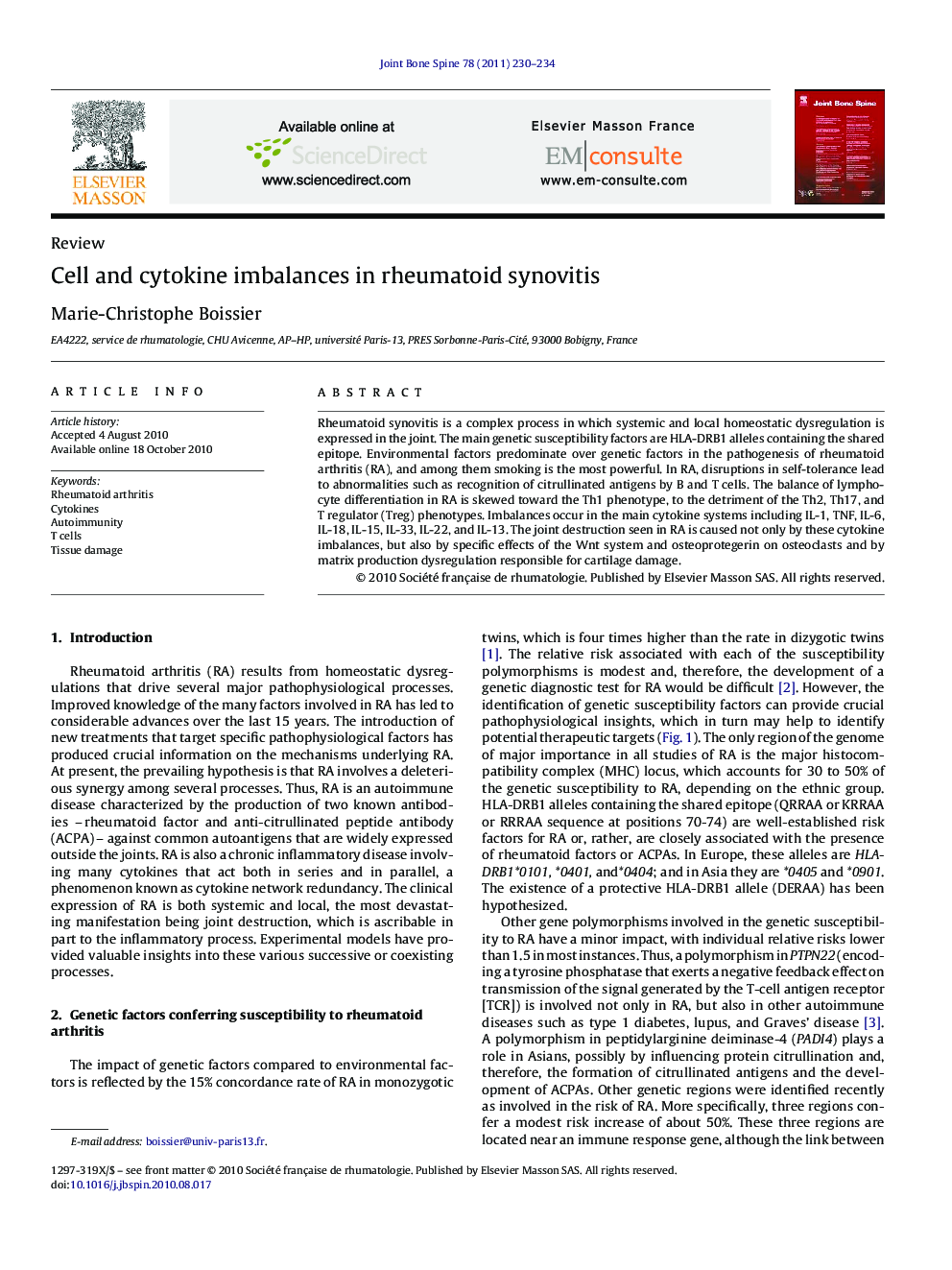| Article ID | Journal | Published Year | Pages | File Type |
|---|---|---|---|---|
| 3366332 | Joint Bone Spine | 2011 | 5 Pages |
Rheumatoid synovitis is a complex process in which systemic and local homeostatic dysregulation is expressed in the joint. The main genetic susceptibility factors are HLA-DRB1 alleles containing the shared epitope. Environmental factors predominate over genetic factors in the pathogenesis of rheumatoid arthritis (RA), and among them smoking is the most powerful. In RA, disruptions in self-tolerance lead to abnormalities such as recognition of citrullinated antigens by B and T cells. The balance of lymphocyte differentiation in RA is skewed toward the Th1 phenotype, to the detriment of the Th2, Th17, and T regulator (Treg) phenotypes. Imbalances occur in the main cytokine systems including IL-1, TNF, IL-6, IL-18, IL-15, IL-33, IL-22, and IL-13. The joint destruction seen in RA is caused not only by these cytokine imbalances, but also by specific effects of the Wnt system and osteoprotegerin on osteoclasts and by matrix production dysregulation responsible for cartilage damage.
